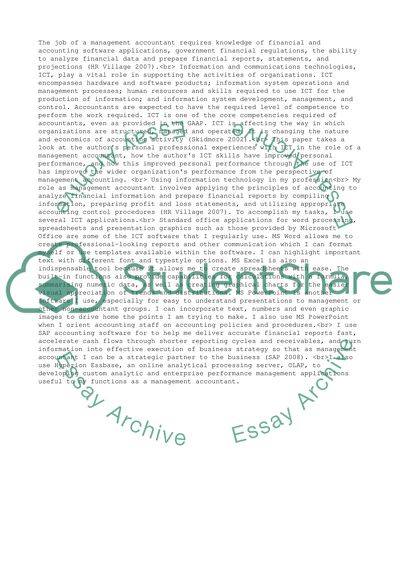Cite this document
(Uses of Information and Communications Technologies in Management Essay, n.d.)
Uses of Information and Communications Technologies in Management Essay. Retrieved from https://studentshare.org/management/1523428-information-and-communications-technologies
Uses of Information and Communications Technologies in Management Essay. Retrieved from https://studentshare.org/management/1523428-information-and-communications-technologies
(Uses of Information and Communications Technologies in Management Essay)
Uses of Information and Communications Technologies in Management Essay. https://studentshare.org/management/1523428-information-and-communications-technologies.
Uses of Information and Communications Technologies in Management Essay. https://studentshare.org/management/1523428-information-and-communications-technologies.
“Uses of Information and Communications Technologies in Management Essay”, n.d. https://studentshare.org/management/1523428-information-and-communications-technologies.


